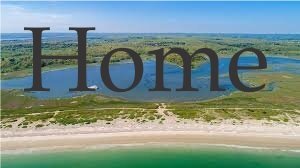David O’Neill, President of Massachusetts Audubon Society,
Meets with Allens Pond Association Members
October 7, 2022
Recently, David O’Neill, President of Massachusetts Audubon Society, spoke to and entertained questions from Allens Pond Association members. He began the gathering by underscoring the vital importance of preserving the health of Allens Pond and reiterated the longstanding commitment of Mass Audubon in sustaining this effort. He went on to provide an overview of the state of Audubon’s work in environmental conservation and land use around the state.
Said O’Neill, of particular importance is achieving the goal of preserving 30% of the open land in the state (as of now, 27% is preserved). This preservation makes protecting biodiversity feasible. Though always challenging. Mass Audubon is looking to increase the preservation of open space in areas that are accessible to underserved populations. “We need nature in the city, in parks, in free spaces,” said O’Neill. Currently, Mass Audubon is concentrating on parcels in Chelsea, in North Cambridge, and in Lowell. “We are trying to increase the tree canopy,” he added. To that end, Mass Audubon recently also got involved in halting a development project in Hyde Park that would have impacted open space.
The organization currently has 160,000 members, 30,000 of whom joined in the past two years, perhaps after the volume of visits to sanctuaries grew in the wake of the pandemic. Acknowledging the ongoing crisis of food security in the area, Mass Audubon’s farms (Drumlin Farm in Lincoln and Moose Hill in Sharon) have been expanding efforts to provide produce to underserved communities. Lauren Kras, present at the meeting and Regional Director of Mass Audubon South East, emphasized that working in partnership with farmers is of increasing importance to the organization.
Asked how Mass Audubon coordinates with other organizations in the region, O’Neill and Kras underscored the strength of partnerships with the Coalition for Buzzards Bay, Dartmouth Natural Resources Trust, Trustees of Reservations, US Fish and Wildlife Service and other groups. Said O’Neill, “The land trust community is a close collaboration. Working together this year we have put 1400 acres in conversation.” Mass Audubon is working with the Coalition for Buzzard’s Bay on preserving cranberry bogs and on activities on Cuttyhunk.
O’Neill was asked to describe Mass Audubon’s vision for Allens Pond. “This is an amazing coastal resource,” he said. “The pond is extremely important to migrating birds.” The organization is very interested to see as much land as possible located around key biological resources being placed in conservation.
O’Neill spoke about efforts statewide towards energy independence (greatly enhanced by the recently passed Inflation Reduction Act bill), which is somewhat at odds with efforts to conserve wild lands, as Mass Audubon and others estimate that between 160,000 and 220,000 acres are needed for solar panel placement to achieve energy goals. A discussion ensued about placing panels on existing buildings such as abandoned shopping malls, and also about implementing ways to make the panels greener, putting vegetation around them and adding more bird-friendly vegetation.
Attendees asked for Mass Audubon’s position about offshore wind and learned there is not a policy yet at this time. But a policy should be developed, says O’Neill. “Right now, choices are piecemeal town by town. Our number one project is to develop policies. Can local governments require solar be put on new construction? All commercial structures? Some companies are really working on reaching a net zero impact.”
Sea level rise is of course a vital concern to the area. To that end, Mass Audubon is working with a number of fish and wildlife groups to renourish areas using collected dredged materials. Scientists are also studying dead areas in the marsh and looking to find ways to open those spots up to water and bring them back to life.
It was noted by an attendee that various studies of the pond, going back to 2007, have been promised but not followed up on. What is the status of those studies? Locally, Mass Audubon staff are actively working on this, exploring coordinating with UMass Dartmouth. Mass Audubon commits to following up on these studies, to make sure they are completed.
Attendees asked if it were possible for local landowners to gain access to studies, for awareness and to learn of the best ways to combine efforts. This was agreed to.
The overarching themes David O’Neill left the group with:
--Allen’s Pond is a jewel and vital to many populations.
--There are many people coming from all sorts of worlds that are very interested in the health of this pond. We need to communicate, support and listen to and share ideas, and involve as many people as we can in to work together on meeting the threats to this jewel.
Notes by Betsy Powel, Secretary APA
Edited by Deborah Kovacs, Content Support Editor, APA
